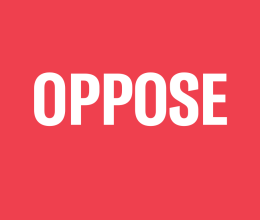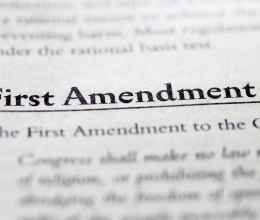
This case involves videotapes of Mr. Dhiab, a Guantanamo detainee, being forcibly extracted from his cell and force-fed. The tapes were viewed as part of his habeas corpus case, and when various news media moved to intervene to seek release of the videotapes, the district court granted the motion and ordered the tapes released with some redactions. The government appealed, and in April 2015, we joined with the Reporters Committee for Freedom of the Press in filing an amicus brief in the D.C. Circuit. Our brief focused on the public’s interest in seeing the tapes and on why the Government’s argument that release may cause anti-American actions abroad does not justify suppression under the First Amendment. In May 2015, the court of appeals dismissed the appeal for lack of jurisdiction, because the district court had not yet issued a final order.
On remand, the district court issued a final order as to some of the tapes, and the government again appealed. We again filed an amicus brief with the Reporters Committee for Freedom of the Press, making similar arguments. The court heard oral argument in September 2016.
In March 2017, the court of appeals unanimously reversed the district court's earlier order to have certain (redacted) tapes released, agreeing that the tapes were properly classified and that national security considerations overrode any First Amendment or common-law right of public access that might otherwise exist. Beyond that, the judges disagreed. Judge Randolph concluded that the right of access didn’t apply to habeas corpus proceedings at all. Judge Williams concluded that it probably didn’t apply to materials filed under seal and never relied upon by the court in adjudicating the case. Judge Rogers concluded that the right of access at least probably existed here, but was outweighed.
With regard to our argument about the videos being suppressed under the First Amendment, the Court also ruled that the government was not suppressing speech, but just not releasing its own videotapes.

